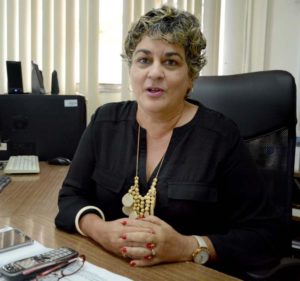
Cuba’s foreign investment: Will the new rules solve the problem?
HAVANA – Law 118 dealing with Foreign Investment in Cuba is considered a good legal standard and, in theory, allows for attracting foreign investment. The pace of the approval of these new businesses, however, is slow and bureaucratic.
It is common knowledge that Cuba’s rate of economic growth is low and has stagnated in the recent past. Among the many factors for it is the low levels of investment — never higher than 12 percent in relation to the Gross Domestic Product. And since domestic savings are very weak, the country does not invest. However, other external financial resources could be attracted to the country via foreign investment. In fact, these proposals already exist. The problem is how slowly they are approved, if at all.

Let us recall that Guideline 78 of the documents of the VII Party Congress calls for “increasing the participation of direct foreign investment as an important source for the development of the country.” But in practice, that guideline has not been properly followed.
Raúl Castro Ruz, First Secretary of the Central Committee of the Communist Party of Cuba, and Cuban President Miguel Díaz-Canel Bermudez have often reiterated the importance of paying necessary attention to the potential of direct foreign investment and its dissimilar chain formulas with the national industry. However, entities that deal with the issue continue to work at a slow pace. Or, put another way, the indicators that can show progress in that area, such as the increase in the number of businesses, amounts invested, etc., reflect slowness and few results.
On the other hand, public information on these foreign investment projects is scarce and little is known about them. Once a year, at the beginning of November, and independent of journalistic analysis, a bit of information is divulged in the context of Havana’s International Fair, which, by the way, is a trade fair.
A portfolio of business opportunities is presented there, as if such a presentation is enough to attract investment. One must seek investments and presenting such a portfolio is just one of the steps in attracting suitors. Unfortunately we do not know if the authorities in charge are doing the right thing in terms of publicity, or if the actions taken disclosing opportunities are sufficient.
Precisely for these reasons, it is gratifying that the Official Gazette of Cuba — in its Extraordinary Edition No. 38 of August 2, 2018 — published a Decree and three Resolutions with the objective of streamlining the negotiation and presentation processes of foreign investment projects in Cuba.
What changes?
It is striking that the feasibility study, considered a prerequisite, was eliminated and the steps for the preparation of the file that each investor must present has been made more flexible.
For example, Decree No. 325 of 2014 required that the files be presented with a completed feasibility study, a complex process that required a series of technical requirements and thus delayed the presentation of business opportunities.

Déborah Rivas Saavedra, current director of foreign investment, explained that “from now on, only the pre-feasibility study will be shown [with fewer requirements] in order to accelerate the evaluation and presentation to our ministry.”
The methodological bases for the presentation of financial technical information were also adapted to international standards, the number of tables to be displayed is simplified and specific indicators are incorporated by sector.
The new legal norm removes the need to show documents in conjunction with the MINCEX (Ministry of Foreign Commerce and Investment) dossier requiring an environmental impact study that must be compatible with the defense’s interest “since these provisions are required by the CITMA (Ministry of Science, Technology and Environment) and MINFAR (Ministry of the Revolutionary Armed Forces) presentations for the Evaluation of Foreign Businesses and Investments Committee,” said Rivas Saavedra.
The committee itself said that the rules do not solve everything because expediting the approval of the projects requires the commitment of the businessmen and organizations involved. The main attraction should be the country’s business opportunities, Cuba’s prevailing macroeconomic environment, and of government officials aware of the importance of foreign business opportunities. Many entrepreneurs interested in investing in the country have complained about the lack of interest with their proposals by the different entities involved, including the governing body.
Replacing Resolution No. 16 of 2014 of the MTSS (Ministry of Work and Social Security) related to the Labor Regime in Foreign Investment is Resolution 14 of 2018. In it are included elements concerning the formalization of the work, functions of the employing entity, remunerations for the work, as well as the relationships between the employing entity and the company. It also includes a section related to the resolution of labor disputes.
However, it is time to rethink the existence of Cuba’s job placement employers. According to different surveys and interviews with entrepreneurs based in Cuba, they consider that these are some of the main obstacles when dealing with the national economy. The monetary duality existing in the country, and the exchange rates that are applied in the different foreign companies in Cuba — a Convertible Peso (CUC) equal to two National Pesos (CUP) for some companies, or in the exclusive zone of Mariel where a CUC equals 10 CUP — is discouraging and leads to lack of productivity among the workers, despite the government’s argument that, even then, their income is higher than that of workers in state enterprises.
The reality is that some foreign construction companies have had to hire foreign workers in order to finish their work in the agreed upon time frame. And although there is an argument that the contracted trades have their specializations, it is the high productivity of those builders that highlight this. They receive their remuneration directly from the employer.
What happens in Cuba is immobility in time. A salary measure that was stimulating in the early nineties for Cuban workers employed by these foreign companies cannot be the same 28 years later. Many foreign contractors, moreover, prefer to bring their own foreign labor force because of the issue of direct payments to the worker.
The new rules are aimed at unblocking requirements that hampered foreign investment. At the same time they are still insufficient to garner the $2.5 billion per year Cuba needs in terms of external capital to complement the national investment.
One could, for example, separate the hotel management contracts from the rest of the foreign capitals, since these flow more quickly. In these the foreign investor has little risk in comparison with other investments in certain industries or in other services — for example, an administration contract does not mean large expenditures by the foreign party, since its function is management. But when it comes to investments in a particular industry, the financial amounts are higher, and that’s where the state should be more proactive.
Almost 5 years have passed since the approval of Law 118, and since then the capital received — not the committed — does not exceed $1 billion. We could be talking about an annual average of 200 million, not counting the credit received from the Brazilian government for the construction of the Mariel container terminal.
The economic and commercial blockade imposed by the United States on Cuba is undoubtedly a negative factor for the advancement of some transnational companies. But despite this stumbling block, there are companies that have submitted investment proposals, regardless of sanctions they might face for having a presence in Cuba. And in spite of the risk, approval of some of these business investments is delayed, or when approved, deadlines for the completion of the project and the start-up of the work are delayed unnecessarily. There are companies and their work approved more than three years ago that are still in the constructive primary phase.
Some items questioned by the authorities are understandable: qualifications (or lack of) of the negotiating groups at a sectoral level, delays by institutions that must endorse the project, incomplete documents presented, etc. But those arguments should not become never ending, or be repeated every year. Otherwise, Cuba’s national economy will never reach the volume and amount of business it needs.

